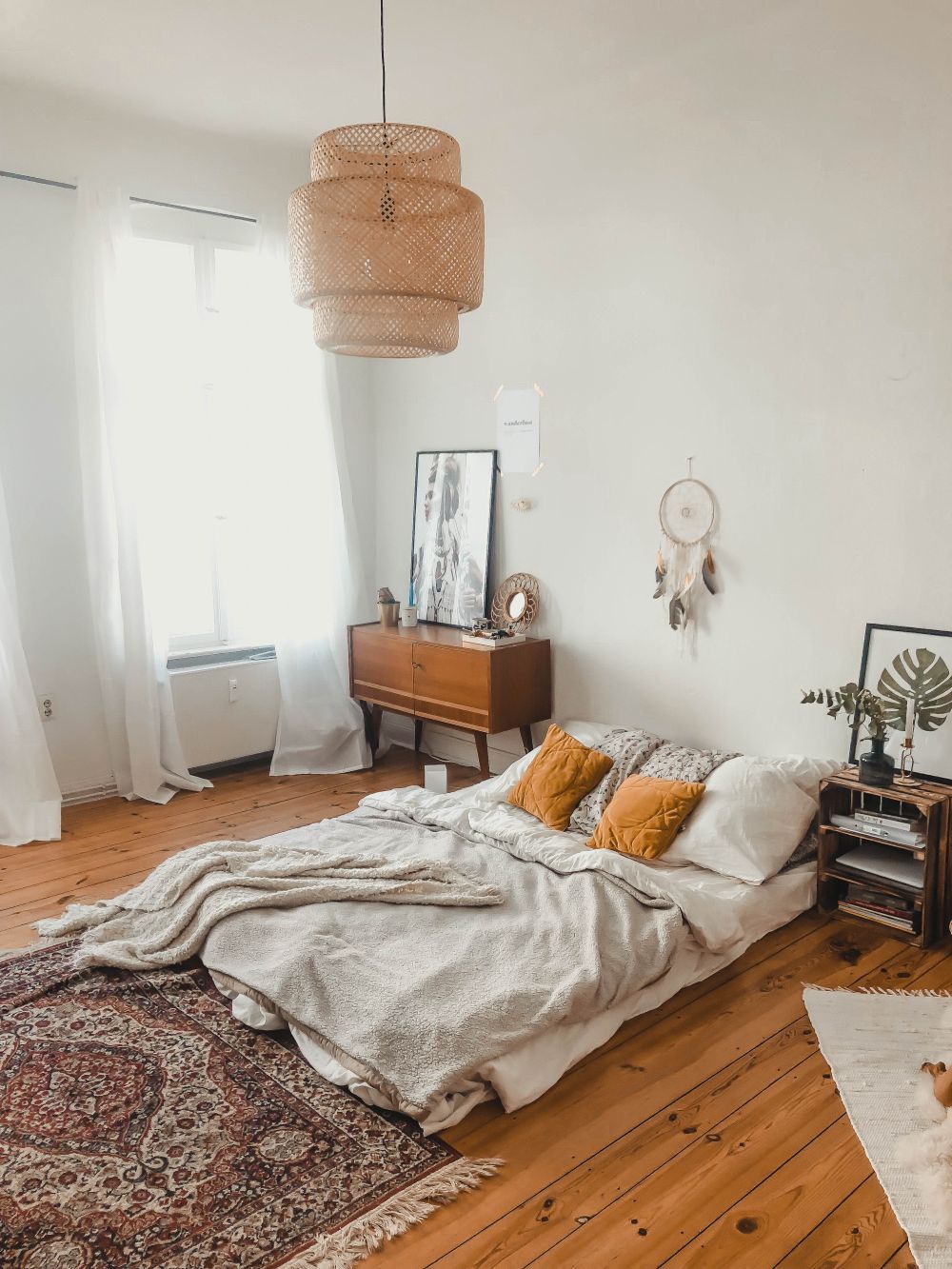Question: Is It Okay to Sleep on the Floor?
We always preach about the importance of sleeping on a good mattress, one that’s suitable for your body shape, weight, height, and favorite sleeping position. However, we keep hearing about this idea of how sleeping on the floor can be beneficial for you. This raises a lot of questions, like if this is true, why doesn’t just everyone buy the firmest mattress possible? Is it okay to sleep on the floor? Is there a right and a wrong way to do it? Let’s find out!

Scientific Evidence
There are three reasons why sleeping on the floor is believed to be good: it helps relieve back pain, it helps treat sciatica, and it helps with posture. But is there scientific evidence to support these claims? Let’s examine these things one step at a time.
First of all, there is a lack of scientific evidence supporting the idea that sleeping on the floor is beneficial for back pain. However, there are people that have tested this out and claimed it help. It is believed that this idea was actually born due to the fact that a soft mattress can actually cause back pain because sinking into its surface too deep causes the spine to rest in an unnatural position.
According to Harvard Medical School, a piece of plywood placed under a mattress that is too soft might help, just like placing the mattress on the floor might also do the trick. Even so, specialists have never claimed that it’s a good idea to give on a mattress altogether. Whether or not sleeping on the floor helps with back pain also depends on your sleeping position and the actual cause of the pain.
The journal Sleep Health put together an article after examining another 24. The article was focused on seeing if sleep is related to the type of mattress used. It turns out that the best type of mattress for back pain is a medium-firm one.
The second claim is that sleeping on the floor can help people who suffer from sciatica. This is a type of pain caused by the sciatic nerve and it is usually a consequence of a bulging or herniated disc. It is true that sciatica pain can somewhat be relieved by sleeping on a firmer mattress but, again, specialists never claimed that sleeping on the floor is a solution to treat it. You can try floor sleeping if you have sciatica, but not without consulting with your doctor first.
The third belief is that sleeping on the floor helps improve posture, yet this is another anecdotal claim, born out of the association with the idea that soft surfaces cause the spine to curve in an unnatural position. If this is something that you would like to try in an attempt to correct your posture, it is also a good idea to talk to your doctor first.

The Right Way
Let’s assume that you did your homework, talked to your doctor (if you have any medical condition that might cause sleeping on the floor to be a bad idea), and are ready to give this idea a try. What are the right steps to take if you really want to try sleeping on the floor?
- First of all, find a clutter-free space to sleep on. Make sure that space is clean because sleeping on the floor already implies a surface that’s most likely dusty or bacteria-filled, so you need to make sure that the spot you decide to sleep in is as clean as possible.
- Even if you’re ditching the mattress, there are still a couple of things that you will need if you want to sleep on the floor. Some people like to use a thin yoga mat, while others will turn to thin mattress toppers. Others just use blankets or towels for floor sleeping, so it really is up to you. Also, make sure that the pillow you use is thin. Don’t fall into the trap of stacking pillow, as these will put a lot of strain on your neck.
- When you have all the items in place, experiment with different sleeping positions to see how they feel. If you’ve been a side sleeper all your life, you might notice that sleeping on the side on the floor creates highly noticeable pressure points, which might lead you to try sleeping on your back. Side sleepers might also find comfort by placing a special pillow between their knees.
- Don’t try sleeping a full eight hours on the floor from the very first night. Allow you body the time to get adjusted to a firmer sleeping surface by first taking short naps and then gradually increasing the hours that are actually spent lying on the floor. You can start with some afternoon power naps and then work from there.
IMPORTANT: There are certain categories of people that should avoid sleeping on the floor altogether. The elderly is such a category, as the aging body will find no comfort in sleeping on the floor. People who suffer from allergies and those who are likely to catch a cold should also avoid sleeping on the floor, just like people with limited mobility. There are no indications that sleeping on the floor while pregnant poses any risks, but you should still consult with your doctor if you are expecting and you want to try sleeping on the floor for whatever reason.
Conclusion
The subject of whether or not it’s okay to sleep on the floor is controversial because most of the claimed benefits are anecdotal and they only make sense if you compare them to the disadvantages of sleeping on a softer surface. While it’s true that there are certain categories of sleepers that should not attempt to sleep on the floor, you can pretty much give it a go in most circumstances, but make sure that you consult with your doctor first if you have any type of pain that could just get worse if you sleep on such a firm surface.
The post Question: Is It Okay to Sleep on the Floor? appeared first on Home Decorating Trends – Homedit.






